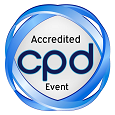
Mariyah Selmi
Pennine Acute NHS Hospital Trust, UK
Title: An audit of documentation during surgical ward rounds
Biography
Biography: Mariyah Selmi
Abstract
Background: Surgical ward rounds are generally fast paced. With a quick patient turn over, key information regarding pre/postoperative care as well as nutrition status often gets missed. Documentation is routinely done by ward based F1 doctors who have had little involvement in management. If seniors are unavailable, omissions in documentation can lead to detrimental outcomes for the patients, such as unnecessary antibiotics/dietary restrictions. The patients’ notes provide a record of on-going clinical issues and serve as a medico-legal document. Therefore, the need for notes to be thorough and legible with a clear indication to all MDT members regarding future care is paramount.
Aim: Aim of this study is to quantify the information documented during ward rounds across the general surgical wards and its effect on patient care.
Method: The last ward round entry in the patients notes was analyzed against 12 parameters chosen by MDT members. This included medicolegal aspects: Dates and time, patient identifier, signature with GMC number of doctor, discussion with patient noted and overall legibility; as well as patient review aspects: Current issues, working diagnosis, plan based on current condition, medication review, dietary requirement review and estimated discharge date with follow up instructions.
Results: A total of 47 entries were analyzed, medico-legal aspects of documentation were above 79%. Medication and diet were only reviewed in 36% of cases with clinical details only being explained to the patients in 6% of cases.
Conclusion: Lack of clear documentation may have led to poor patient outcomes and difficulty for other team members to provide care. The introduction of a new pro-forma prompting daily review of the key areas has shown a vast improvement in documentation and communication between staff and patients. Questioning and reviewing these areas has also provided a learning opportunity with positive feedback from junior doctors.

